|
“When Jesus touches a young person’s heart, he or she becomes capable of truly great things.” – Pope Francis The quote above from Pope Francis’s introductory remarks to the pilgrims of World Youth Day 2016 in Krakow, Poland, spoke to over 2 million young adults traveling around the globe to worship together. Pope Francis’ words were heard by people already impacted by the message of Christ, many of whom, I would guess were informed of and formed by the love of God thanks to their Catholic educations. Today we celebrate in the United States the feast of St. John Neumann, Bishop of Philadelphia and founder of the first diocesan school system in the United States. Per the request of many families in his diocese, Bishop Neumann established a diocesan school system so that the children of the diocese could receive Catholic instruction and grow in their faith in a classroom setting. When the school system was established, the diocese of Philadelphia was strapped for resources, so Bishop Neumann invited many different religious communities to the fledgling schools to tend to the rapidly growing immigrant population in the city. His efforts both established the school system and increased the education of the city’s Catholic youth by more than twenty-fold. His diocesan system later served as the model for parochial Catholic education for much of the United States. St. John Neumann understood in the 19th Century - much like Pope Francis does now - that learning about the love of Christ through educational experiences can be an important part of our evangelical mission in this world. If we are all called to share in the evangelizing mission of the Gospel, then we must consider in what ways those gifts and talents can be utilized for that mission. For St. John Neumann, Catholic education provided the youth a designated place to come and learn about the Lord and how to live as a Catholic alongside of their other studies. For many youth, their formal catechesis ends with sacramental preparation. Families often don’t understand the importance of continual catechesis throughout a person’s life. So, what can we do to help the youth and young adults in our parishes and communities become more engaged in the faith outside of Catholic schools? How can we support education in non-traditional ways? The answer is particular to your individual situation and universal to the faith we all believe in. Pope Francis has some advice and good examples of experiences that I cannot better summarize myself: “Knowing your enthusiasm for mission, I repeat: mercy always has a youthful face! Because a merciful heart is motivated to move beyond its comfort zone. A merciful heart can go out and meet others; it is ready to embrace everyone. A merciful heart can be a place of refuge for those who are without a home or have lost their home; it can build a home and a family for those forced to emigrate; it knows the meaning of tenderness and compassion. A merciful heart can share its bread with the hungry and welcome refugees and migrants. To say the word ‘mercy’ along with you is to speak of opportunity, future, commitment, trust, openness, hospitality, compassion, and dreams.” Is your parish environment one of mercy? Does it foster openness and compassion? Is it willing to embrace people where they are with mercy and hospitality? Is your parish one that is moving outside of its parish borders and going to where it’s a bit uncomfortable and meeting people where they are both physically and spiritually? This is part of the continuing education that we as Catholics must undertake if we are to carry the mission of God to the world. We must constantly learn and relearn the message of Christ as espoused in the Gospels and find ways to practice it in our daily lives. We must learn to love and serve God and to love and serve our neighbor, not just from behind a desk, but in every step we take. **This blog was originally published on January 5, 2017.**
0 Comments
In Advent, we are asked to keep two themes of the season in mind: the birth of the Christ child and preparation for his arrival to Earth again to end time. These great events, that of God descending in human form to Earth to save us from our sins by his death and resurrection, and the end of time with his arrival through the second coming, are powerful and mystical events. I often forget to focus my thoughts on this period from just before Thanksgiving until just before Christmas begins. One way over recent years that has helped me remember this awe-inspiring season of hope and repentance is through listening to one of my favorite Advent hymns: Let All Mortal Flesh Keep Silence. As a brief refresher, it is a song whose lyrics are based on the Divine Liturgy of St. James and has been used as a hymn in Greek since around the third or fourth century. Speaking about the awesome power of Christ and his gift to us through the Eucharist in vanquishing the powers of hell and bringing eternal light, this hymn was revitalized during the Oxford Movement of the 19th Century and adapted to English. For Catholics, we believe in the Real Presence, so our understanding and awe hopefully go much deeper when sung with lyrics such as: “King of kings, yet born of Mary, As of old on earth He stood, Lord of lords, in human vesture, In the body and the blood; He will give to all the faithful His own self for heav'nly food.” For me, this song about Christ Jesus descending and giving of his own life and blood for us – simply because he loves us – is a powerful and calming reminder of what Advent is really about. It is not just about Christmas, and the gift giving, or even just the celebration of Christ’s birth. His birth is not what saved humanity. It was his sacrificial death and gift of the Eucharist that provides us that opportunity to join him in heaven for eternity as fulfillment of the covenant between God and his people. In a season with some of the darkest and coldest days for us in America, a song like this helps us remember that even in our darkest moments, Christ is there as a hopeful light. While the season of Advent is wrapping up, I invite you to take a few moments during your busy season to reflect on the power and awesome love of God’s gift to us, and the preparations we need to make for his return.
In October 2014, I was invited by Fr. Frank Donio, S.A.C. to join the Catholic Apostolate Center as their Program Manager. I remember when I got the call to work for the Center. I was actually on the road driving on a Tuesday evening to my work at a large international retailer when he called and said he'd like to offer me a job with the organization officially. Eight years and many projects later, it's been a pleasure watching the organization grow and evolve as it has reached the end of the celebration of its tenth anniversary year. There are many things that I could list that I am proud to support and highlight. Still, a couple of essential impact pieces would be related to Living as Missionary Disciples: A Resource for Evangelization. Among these are the videos created to help parishes have a deeper understanding of our missionary call and the discussion materials and online free course on the topics of Encounter, Accompany, Community, and Send, plus the six dimensions of pastoral planning. I have used this material in my work as a professor, and even though the book is a few years old, the material is as relevant as ever. The other piece to highlight from the past is the Apostles on Mission program, which is available as a course online for anyone to attend or as physical small group that parishes and dioceses have implemented for their groups' further development of discipleship—or, as we would say, apostolic—activity. As a program designed to give our crucial audience—active Catholics—an overview of topics related to missionary discipleship and evangelization, I'm proud to see the people who have used the materials and those who have helped contribute to the material in different ways. These are just a couple of things we've worked on over the years, and in order not to make this an ad, I wanted to talk about the reason why we do so many things and why I hope this will be why the mission that the Center will carry forward for many years to come. First and foremost, we are a ministry of the Immaculate Conception Province of the Society of the Catholic Apostolate. Through their founder, St. Vincent Pallotti, we understand the importance of apostolic zeal and openness to opportunities from the Holy Spirit. This understanding is well encapsulated in our tagline or motto: Reviving Faith, Rekindling Charity and Forming Apostles. With this mission, we are trying to find forms of revitalization that encourage a deepening of faith and lead to apostolic zeal in others through good works and a hope-filled attitude. Through our resources and materials, we try to equip active Catholics with the tools needed in the modern world to engage others positively in the faith. As we move into our eleventh year as an organization, it's essential to look back at what we have done, but more importantly, it’s essential to remind ourselves to see what things we will carry forward another ten or twenty years in the future. That belief in the mission, promotion of the ability for all to be a disciple or apostle via their Baptism, and finding creative ways to support the mission are all crucial attitudes that will carry us into the future. As much as they are essential for us, all the baptized should be engaged in these same principles, and we hope that through our work and resources, you will be able to assist your families, careers, and groups in spreading the Joy of the Gospel.
I had joined the Catholic Apostolate Center in October 2014, just prior to its third anniversary of founding. I was asked to help move forward several projects and programs for the Center as a full-time staff member. I joined with little experience in Catholic non-profits. However, our Founding Director, Fr. Frank Donio, S.A.C., saw some potential in my work and was willing to put in the time and effort to help accompany me in the particulars of this world. Now, seven years later, I have completed a Master's Degree related to Church Management. I can look back on our 10th anniversary and see the work and contributions to the field of evangelization and missionary discipleship laid out before I joined the team. I say all this not as congratulations to us as an organization, but because the 10th anniversary has served as an excellent opportunity to reflect on the lessons I have learned and hope can be applied to your situation. One of the most critical pieces of knowledge that I have learned through my work is that collaboration and co-responsibility can have a profound impact on accompaniment and evangelization when done correctly. It is not easy to do, as most people reading this would agree, but it can have profound positives if done conscientiously and prayerfully. How to do that? It can take many forms, but one of the most important ways is allowing for specific and intentional prayer. Not just a simple Hail Mary or Glory Be to start a meeting, but an intentional time-consuming prayer to frame conversations and discussions to be spirit-led and discerning. Dr. Susan Timoney, in her recent book on Parish Pastoral Councils, has lots of good points on how to do this for that audience. However, these practices can apply to all meetings when we are gathered to discuss how God is calling us to serve our communities. Another piece of knowledge that I have learned through my work is the importance for all of us active Catholics to acknowledge the intrinsic value in people's contributions to the work of evangelization. What does this mean? It means that everyone, no matter their position, education, or formation, has value to the work of leading others to Christ. The Bible is full of examples of this, and the saints provide a similar model for us to follow. However, it can be challenging if you are a leader looking for people to take on the roles of a catechist or Eucharistic minister. What Living as Missionary Disciples: A Resource for Evangelization says about forming leaders is correct. They must be engaged in and adept in pastoral, intellectual, spiritual, and human formation. It is our responsibility as Catholics to encourage that growth in those we lead or assist. This also goes, to some extent, to the importance of accompaniment in our work as well. If we are not engaged in accompaniment, we are essentially letting people fend for themselves and not modeling what Christ did with the apostles and disciples as espoused in the Bible. I hope that with this blog post, those who are leaders in their parishes, bible study groups, and any other activity that promotes the work of evangelization, can understand that there are effective strategies for effective leadership. Through this, we can help others gather and learn of the mysteries of Christ and His Church. Suppose we all can accompany, lead, and offer discernment in prayerful consideration. In that case, we might help the wider community be engaged in the life, death, and mystery of Christ through the Church. In 2020, when the COVID-19 pandemic was beginning in earnest, there were many questions about what would happen in the Catholic Church if people’s lives were upended in such profound ways. In many respects, we may not truly understand the ramifications of a worldwide change in perspective until we can look back at it. That being said, with “the return to normal,” the opening up of parishes, and the re-starting of activities have come questions about what we have learned from this pandemic experience. I think many of us re-learned that community and connection are important. The question that seems to be challenging folks is: Now that we can start to plan to meet in person, what should our parish activities look like? For the past two years, I have had the pleasure of doing Master’s work in Church Management at Villanova University. Most of my studies occurred during this pandemic and offered a unique perspective of what effective parishes and communities have done to respond to a sudden shift in the assumptions of what the Church in the United States looks and acts like. Most of the parishes that were able to weather the storm well were able to do so because they were intentional about what community is and should be. They did not assume that a parish had to be only the functions that happen within a city block or a singular location, but rather can have an online presence and remotely meet people where they are. I think of my friends and colleagues with young families or who have long commutes and the complications that our parishes can impose on people who would like to be involved, but cannot be due to the lives that they lead. Are we as church leaders imposing certain restrictions for the members of the parish to be able to build a community? As active Catholics, our job is to share the joy of the Gospel that we hopefully have experienced with others. The pandemic has proven that there is a desire for community and for Christ in people’s lives despite barriers. However, we as Catholics also need to acknowledge that if we “are now just going back to normal,” we are also going back to the normal of an older and smaller church. We need to see the pandemic not as a temporary event, but rather the opportunity that God has given us to think creatively and reflectively over the past year about what it means to be Catholic in the United States. Similarly, what is our hope for the future of the Catholic Church in the United States? If we do not think about these things, we risk becoming a closed community for only those who are already active members. There were many challenges during the pandemic, but there were opportunities to grow and learn for our Church as well. My hope is that we take the lessons that we have learned, both positive and negative, about what it means to be in a community and to be community leaders and apply those findings in healthy, creative ways going forward. For more resources on navigating COVID-19 as a community, please click here. “According to a 2018 national survey by Cigna, loneliness levels have reached an all-time high, with nearly half of 20,000 U.S. adults reporting they sometimes or always feel alone. Forty percent of survey participants also reported they sometimes or always feel that their relationships are not meaningful and that they feel isolated.” – American Psychological Association. This is a report from 2019 about the rising levels of social isolation and loneliness experienced in the United States. It is not something new, and as days and years progress, it is likely to get worse if we do not act now. So how does the Catholic Church respond to such increasing levels of isolation? Fortunately, the Church has discussed accompaniment as a solution for a very long time. Most recently, it has been discussed at great length throughout the papacy of Pope Francis and in the recent synod on Young People, the Faith, and Vocational Discernment. As recently as last year, Pope Francis in Christus Vivit talked extensively about the Church’s role in preventing loneliness in young people. Still, as the study above shows, loneliness is not something that only young people experience. Pope Francis talks about the untethering and uprootedness of people in this way: “We need to make all our institutions better equipped to be more welcoming to young people since so many have a real sense of being orphaned. … To all these orphans – including perhaps ourselves – communities like a parish or school should offer possibilities for experiencing openness and love, affirmation, and growth. Many young people today feel that they have inherited the failed dreams of their parents and grandparents, dreams betrayed by injustice, social violence, selfishness, and lack of concern for others. In a word, they feel uprooted.…The experience of discontinuity, uprootedness, and the collapse of fundamental certainties, fostered by today’s media culture, creates a deep sense of orphanhood to which we must respond by creating an attractive and fraternal environment where others can live with a sense of purpose.” (Christus Vivit 216) So what does this mean for our parishes or for us as Catholics? Each one of us is called to accompany others on the journey of faith. Christ himself modeled this with his disciples and has charged us to do the same. Accompaniment is fundamental to Christianity. It means building an “intentional relationship that is oriented toward a definitive direction of growth in holiness and transformation in the Person of Christ.” To begin, I would suggest first taking a look at your immediate circle of connections. Family, friends, co-workers, neighbors, etc. should be your first group to encounter and accompany because they are the people you organically have relationships with each day. These are the people most likely to open up to you if they are experiencing troubles. Even then, it is essential to listen and provide a connection to Christ and the Church community. The role of accompaniment in giving someone a link to the broader Catholic community is vital, and acknowledging every baptized person’s role in this calling is essential. As the Art of Accompaniment: Theological, Spiritual, and Practical Elements of Building a More Relational Church discusses, accompaniment can serve as a powerful avenue to welcome and keep someone in the Church in ever uncertain times and events in someone’s life. It can lead to a deeper connection to Christ, a fuller integration into the world at large, and a more authentic sense of their mission to serve Christ and the Church (Art of Accompaniment, 19). Every day there are more and more people who are experiencing isolation, loneliness, and a sense of not belonging. This has only been exacerbated by the current coronavirus pandemic. Current events, personal circumstances such as their health, and many other factors can contribute to feelings of isolation. During this time, I invite you to pray about different ways you can accompany those who are feeling lonely. The Catholic Church can be a refuge in this storm of isolation and meet people where they are. Even if someone is lonely, as one of God’s children, they are never alone, and it is our job as Catholics to remind them of that fact. For more resources on accompaniment, please click here. For more resources to accompany you during the coronavirus, please click here. In the movie The Farewell, the central plot hinges on the question of an individual vs. communal approach to the burden of end of life care. One of the central characters has cancer, and the issue surrounding the family is whether the person with the disease should know or not. In the US, as the movie acknowledges, such duplicity would not be likely to happen, but in China, where the movie takes place, society often allows for such things because they believe the burden of suffering is to be carried by the family and friends rather than the sick or afflicted. I found that to be a fascinating concept because most of us have experienced the loss of someone due to cancer, and the question of death and mourning is a very present concern to all of us. I would recommend viewing the movie, if for nothing less than to understand the potential hardships of walking with someone who is about to die and with those that love them. Our faith acknowledges that our time on earth is not all that there is, but rather that we are made for heaven and joining God. The Catechism of the Catholic Church declares: “The Christian funeral is a liturgical celebration of the Church. The ministry of the Church in this instance aims at expressing efficacious communion with the deceased, at the participation in that communion of the community gathered for the funeral, and at the proclamation of eternal life to the community (CCC 1684).” As Catholics, we believe that there is life after our life on earth. So the funeral and death itself serve as reminders of the Paschal Mystery and our hope for all—and in particular, those who have just died—to have eternal life in heaven with the Lord. The prayer spoken while receiving ashes on Ash Wednesday is a poignant reminder of this: “Remember you are dust and from dust, you shall return.” Time on earth is fleeting, but time in heaven is eternal. As Catholics, we are part of a community of believers. We must not only accompany the one who is preparing to die, but also those who the deceased is leaving behind. This is not the responsibility solely of the priest or deacon presiding over the funeral rites, but rather a shared responsibility of all the church. The Catechism goes further to explain that funeral ceremonies have the Eucharistic Sacrifice as a critical component because: “It is by the Eucharist thus celebrated that the community of the faithful, especially the family of the deceased, learn to live in communion with the one who ‘has fallen asleep in the Lord,’ by communication in the Body of Christ of which he is a living member and, then, by praying for him and with him” (CCC, 1689). It is essential as a community of faithful to also accompany those left behind who are grieving the loss of a loved one. This grief is normal and completely human, but it means that we need to accompany those grieving and serve as a living reminder of Christ’s presence in their lives. We are called to serve as witnesses to those we encounter daily, whether we know them well or not. As stated in the book the Art of Accompaniment: Theological, Spiritual, and Practical Elements of Building a More Relational Church: “Witnessing can be effective even if a deep, committed relationship is not yet formed…witnessing demonstrates an example of an integrated Christian life within the one who witnesses. … Witnesses are essential to the process of spiritual accompaniment because, ‘modern man listens more willingly to witnesses than to teachers, and if he does listen to teachers it is because they are witnesses (Evangelii Nuntiandi)’ (Art of Accompaniment 16)” Times of suffering and hardship are especially profound moments for evangelization and witness. As a Church, we can offer hope and healing to those who are dying or grieving the loss of a loved one. For more resources on Accompaniment, please click here. “I am the servant of the Lord, may it be done to me according to your Word.” (Luke 1:38)
This passage from Mary’s fiat was the theme of this year’s World Youth Day (WYD). World Youth Day 2019 took place from January 22-27 in Panama City, Panama, where it gathered hundreds of thousands of young people from all over the world to share in the faith, culture, and joy of the Catholic Church. WYD is a pilgrimage for young people that includes times of reflection and prayer that often results in lifelong shared experiences with other people. Many people, myself included, couldn’t make such an international pilgrimage this year. Instead, I joined over 1,500 young adults from 20 different dioceses in the US for Panama in the Capital at The Catholic University of America in Washington, D.C. A stateside gathering like this is intended to carry the spirit of World Youth Day to people much closer to home, while also modeling the solidarity of the Catholic faith with those around the world who gather in God’s name. The Catholic Apostolate Center was asked to be a co-host and platinum sponsor of the event. Our role in Panama in the Capital helped the Center live out part of our mission of spreading the Gospel and increasing the awareness of the importance of young adults and their faith journeys within the Church. For us, it is as simple as Pope Francis said during the close of WYD: “You, dear young people, are not the future but the now of God. He invites you and calls you in your communities and cities to go out and find your grandparents, your elders; to stand up and with them to speak out and realize the dream that the Lord has dreamed for you.” For the Church, the importance of evangelization through the current generation of young people is critically important for the vitality of the Church in the present and for the cementing of the future of the Church. We were fortunate to have our Director, Fr. Frank Donio, S.A.C. give a presentation on how to lead as a Christian. Various staff were present to cover the event digitally for pilgrims. Our staff were asked to serve as Masters of Ceremonies during the event at the St. Vincent Pallotti Stage, and so Blog Editor Kate Fowler and Administrative Associate Brian Rhude volunteered their talents to welcoming presenters and musicians alike to the stage throughout the whole event. We were able to exhibit and provide resource materials for people in the area, as well as share in the general excitement of the event. Monica Thom Konschnik, the Center’s Assistant Director of Administration, had been working with the event’s planning team for 18 months when we finally all gathered together to celebrate. Fr. Frank was able to give some remarks to the gathered attendees for the Vigil Mass and also served as a concelebrant for the Mass. In the evening, staff were invited to assist in the candlelight Stations of the Cross in the Crypt Church in the National Shrine of the Immaculate Conception, with Archbishop William E. Lori, Archbishop of Baltimore, presiding. It was a wonderful event that was reminiscent of what happens at World Youth Day with the Holy Father. All in all, our young adult staff was present and contributed to this event with a sincere appreciation of the Church in its mission to evangelize. We were honored to make this international event more accessible to young people locally and pray that this experience helped many encounter Christ and celebrate the joy and wonder of World Youth Day. Questions for Reflection: What is your experience of World Youth Day? How can you show solidarity with those present at WYD within your local community? To learn more about WYD, please click here. In my work at the Catholic Apostolate Center, and as a self-identified millennial, I am frequently asked: "How can we bring young people back to the Church?" It's a question I get asked a lot by people who are my parents’ age and older, mainly because they see their children, grandchildren, or nieces and nephews ‘willingly’ leaving the Church. Fortunately, our Church across the globe is also asking this very question during its October 2018 synod on Young People, the Faith, and Vocational Discernment. In preparation for the synod, the Vatican recently released the Instrumuntum Laboris (Latin for "working instrument") for the bishops of the world to review, discuss, and offer insights to Pope Francis. The document talks about the challenges that face young people, classified as those aged 16-39, in the Church and world today—from being an individual in a global society, to finding meaning in life, to living in an increasingly materialistic world, etc. —and then discusses possible solutions to these problems. The document suggests that solutions for individuals vary, but that all begin with discernment through accompaniment. When we speak of accompaniment, we might think of one person who helps another work through some difficulty by offering insight or expertise on how to overcome it – kind of like a coach. Instrumuntum Laboris, however, emphasizes that the accompaniment is not just a simple form of coaching, but rather: "...true accompaniment will strive to present vocation not as a pre-determined fate, a task to be carried out, a ready-made script, to be accepted by discovering how to implement it effectively. God takes seriously the freedom He has given to human beings, and responding to his call is a commitment that requires work, imagination, audacity and willingness to make progress also by trial and error" (Instrumentum Laboris, 121). It is through accompaniment that young people (and by extension all people) can understand the power of God in their lives because they see God working through that other person. This mentor helps the young person to see how God calls each and every one of us to be a messenger for the Word of God. The mentor also helps the young person to discover the best way to use his own talents and gifts for the Mission of the Church. The hope is that through this pairing, the spiritual growth of the individual will lead to the spiritual growth of the universal Church. Now the next questions to ask are: "Who is a mentor? What does a mentor look like?" Our Bishops and Magisterium have wisely begun to ask this question as well and have devoted an entire section of Instrumentum Laboris to mentorship and the ideal mentor: "[A mentor is] a faithful Christian who engages with the Church and the world; someone who constantly seeks holiness; is a confidant without judgement; actively listens to the needs of young people and responds in kind; is deeply loving and self-aware; acknowledges their limits and knows the joys and sorrows of the spiritual journey ... mentors should not lead young people as passive followers, but walk alongside them, allowing them to be active participants in the journey" (132). From my experiences with my mentors and as a mentor myself, as well as the experiences of friends and co-workers, I understand that active participation is the key. Unlike a coach who watches his players from the sidelines, a mentor is someone who walks with his mentee on the journey to holiness, allowing himself to grow in holiness as well. Spiritual accompaniment, as the document states at different points, is not easy—in fact it is quite difficult. It requires a deep love of Church, confidence, humility, self-awareness, and commitment. It takes time and dedication, like all strong relationships do. It requires an understanding that our faith is not passive, but rather a calling "to go and make disciples of all nations.” We are all called—priests, religious, and lay—to be mentors to those of all ages, demographics, and steps in their faith journey. Let us pray that God reveals to us those whom we are called to mentor and that we have the courage and strength to walk alongside them in our shared pursuit of holiness. Question for Reflection: What aspects of myself are well suited to mentorship? How can I continue to develop those traits or skills?
“The word of God nourishes both evangelizers and those who are being evangelized so that each one may continue to grow in his or her Christian life” – National Directory of Catechesis Over the last 40 years, the United States Conference of Catholic Bishops (USCCB) has especially recognized the importance of catechists in the process of evangelization by reserving the third Sunday in September as “Catechetical Sunday.” Catechetical Sunday commemorates and celebrates the ministry of formal catechesis, which is the systematic teaching of the tenets of the Catholic faith in order to help others know more about God and his Church. This ministry has had a significant role in my life over the past four years and across two different dioceses. There is something amazing about trying to explain the Old Testament prophets to a group of 6th grade students, a majority of whom has never heard the likes of Jeremiah, Isaiah, Elijah, etc. I love seeing the excited faces of students that either know or are interested in the subject of my teaching, while the blank ones challenge me to find compelling ways to make the faith a living part of their lives. On Catechetical Sunday, parishes, including where I have served, have a particular ritual: before the recessional at the end of Mass, the celebrant asks all who are called to serve as catechists to stand and receive a blessing for their work throughout the year. This serves two purposes: it helps the catechist understand the importance of their teaching role in the parish and also serves as a moment of reflection for the rest of the congregation. The influence of a catechist on a young life cannot be understated. Below are a few tips I’ve learned throughout my time as a catechist that can help those interested in pursuing the ministry of catechetical formation.
Catechetical Sunday reminds us of our individual roles in the evangelization of the baptized. In our small way, my fellow catechists and I—men and women from all walks of life and individual faith journeys—try to sow the fruits of faith for the next generation of disciples. Pulling from my toolkit, I will leave you with a blessing for catechists: “Lord God, source of all wisdom and knowledge, you sent your Son, Jesus Christ, to live among us and to proclaim his message of faith, hope, and love to all nations. In your goodness bless our brothers and sisters who have offered themselves as catechists for your Church. Strengthen them with your gifts, that they may teach by word and by example the truth that comes from you.”
Communicating in an audio format is nothing new. During and after World War I, radio transformed communication in households and across battlefields. Speeches, reporting, and entertainment also utilized this medium for many different audiences and purposes. The Catholic Church has taken advantage of developments in audio communication in order to transmit homilies, catechesis, and words of encouragement for almost a century, the long standing Vatican Radio being one example. Now in the 21st century, a new medium of audio evangelization has formed in the lexicon and zeitgeist: podcasting. A portmanteau for iPod and broadcasting, podcasts are audio files that can be downloaded and listened to. They have reinvigorated the audio sphere for the digital age, with thousands of podcasts and hundreds of hours of content being created every day. What does that mean for Catholics trying to evangelize and move people to mission? How should we as a Church approach new media and new methods of communication?
Many Catholics are trying to answer that question in a variety of ways. During the World Day of Communication in 2014, Pope Francis encouraged the Church to “boldly become citizens of the digital world.” He continued, “The Church needs to be concerned for, and present in, the world of communication, in order to dialogue with people today and to help them encounter Christ.” Over the past year, the Catholic Apostolate Center has created podcasts in an effort to evangelize and help others encounter Christ. We started by recording some of our most popular blog posts for people to listen to “on the go,” and we are now launching a new podcast initiative called “On Mission” to discuss important themes and topics for Catholics today. (Keep an eye on www.catholicapostolatecenter.org/podcasts for the forthcoming launch of this series.) How do we view podcasts as a moment of evangelization? Like any other video, writing, or audio, podcasts enable us to be prophetic witnesses to the faith in a way that’s approachable and encounters people where they are. I think that if we approach podcasts as Archbishop Fulton Sheen approached television over 50 years ago, we will be responding to Christ’s command to “go out to all the nations” and evangelize. Archbishop Sheen used a new medium of communication for the glory of God. Today, podcasts are just one tool we can use in order to more effectively spread the Gospel message. In many ways, Pope Francis is calling all people to engage in this sort of witness of the faith by utilizing the means of communication at their disposal. During the World Day of Communication in 2014, he remarked on the importance of using media to inspire moments of encounter and to increase solidarity. He said, “In a world like this, media can help us to feel closer to one another, creating a sense of the unity of the human family which can in turn inspire solidarity and serious efforts to ensure a more dignified life for all. Good communication helps us to grow closer, to know one another better, and ultimately, to grow in unity.” At the Catholic Apostolate Center, we aim to use the various means of communication at our disposal for that very purpose: to create a sense of unity within the Church and also in the world. How beautiful would it be if all members of the Body of Christ were to be this peaceful and harmonious? It is my belief that we can, as was done with radio or television, offer this sort of peaceful accompaniment to another generation of evangelizers. I would like to conclude with a prayer written by Pope Francis that was inspired by the prayer of peace attributed to St. Francis: “Lord, make us instruments of your peace. Help us to recognize the evil latent in a communication that does not build communion. Help us to remove the venom from our judgements. Help us to speak about others as our brothers and sisters. You are faithful and trustworthy; may our words be seeds of goodness for the world: where there is shouting, let us practice listening; where there is confusion, let us inspire harmony; where there is ambiguity, let us bring clarity; where there is exclusion, let us offer solidarity; where there is sensationalism, let us use sobriety; where there is superficiality, let us raise real questions; where there is prejudice, let us awaken trust; where there is hostility, let us bring respect; where there is falsehood, let us bring truth. Amen.” Questions for Reflection: What are some examples you’ve seen of using media positively in order to build communion? Can you think of others in which media or technology created isolation? How is God calling you to use the tools at your disposal in order to share the Gospel? To listen and subscribe to our latest podcasts, please click here. On July 1-4, 2017, Catholic dioceses and organizations reflecting the diversity of the Catholic Church in the United States will convene for a Convocation of Catholic Leaders in Orlando, FL. Approximately 3,000 people representing over 155 dioceses and numerous church organizations will meet to discuss methods and ideas for making Pope Francis’ vision of a “missionary option” for Church ministries and activities a reality in the United States. This unprecedented event is being called and organized by the US bishops, signifying the importance of such an event as a necessary step for Catholics in the Church today to live as missionary disciples filled with the “Joy of the Gospel.” While those who are attending the Convocation are already Church leaders, they look to the guidance of the bishops in order to help them tackle their particular pastoral challenges and foster opportunities for growth.
The Catholic Apostolate Center has been invited by the United States Conference of Catholic Bishops (USCCB) to collaborate on the planning of the Convocation, as well as to attend as a sponsor and exhibitor in order to share our ministry and promote our work of fostering evangelization. Center Director, Fr. Frank Donio, S.A.C. will be speaking at the Convocation to help guide and foster dialogue among the participants. The Center is also collaborating with the USCCB to develop and distribute the Participant Guidebook and Journal and collaborate with them on pre-Convocation webinars. One webinar provides the theological basis of the Convocation. Another webinar discusses the practical layout and methodology of the event. The mission of the Catholic Apostolate Center is to revive faith, rekindle charity, and form apostles through the lens of Pallottine spirituality. Our patron, St. Vincent Pallotti, believed that all the members of the Church are called to collaborate in spreading the Gospel. “The Catholic Apostolate, that is, the universal apostolate, which is common to all classes of people, consists in doing all that one must and can do for the great glory of God and for one’s own salvation and that of one’s neighbor,” St. Vincent Pallotti said. The Catholic Apostolate Center further hopes to help dioceses, organizations, and ministries better collaborate with each other and find ways to share the resources we have as a Church. The Convocation of Catholic Leaders will be a monumental event for the Church in the United States which we hope will bear much fruit. For those attending, I invite you to read, reflect, and pray for the openness of the Holy Spirit in guiding your participation during the Convocation. We also invite attendees to visit our exhibit to learn more about our resources and work. At the Catholic Apostolate Center, we are always interested in collaborating and working together to form apostles for our Church. For those that will not be able to attend, please pray for the participants and organizers of the Convocation, that they may be open to the Holy Spirit to guide their efforts. May he help us become missionary disciples, or as our Patron St. Vincent Pallotti would say, apostles, in the United States. To learn more about the Convocation for Catholic Leaders, please visit the USCCB website by clicking here. For additional information and resources, we invite you to visit our website by clicking here. “When Jesus touches a young person’s heart, he or she becomes capable of truly great things.” – Pope Francis The quote above from Pope Francis’s introductory remarks to the pilgrims of World Youth Day 2016 in Krakow, Poland, spoke to over 2 million young adults traveling around the globe to worship together. Pope Francis’ words were heard by people already impacted by the message of Christ, many of whom, I would guess were informed of and formed by the love of God thanks to their Catholic educations. Today we celebrate in the United States the feast of St. John Neumann, Bishop of Philadelphia and founder of the first diocesan school system in the United States. Per the request of many families in his diocese, Bishop Neumann established a diocesan school system so that the children of the diocese could receive Catholic instruction and grow in their faith in a classroom setting. When the school system was established, the diocese of Philadelphia was strapped for resources, so Bishop Neumann invited many different religious communities to the fledgling schools to tend to the rapidly growing immigrant population in the city. His efforts both established the school system and increased the education of the city’s Catholic youth by more than twenty-fold. His diocesan system later served as the model for parochial Catholic education for much of the United States. St. John Neumann understood in the 19th Century - much like Pope Francis does now -that learning about the love of Christ through educational experiences can be an important part of our evangelical mission in this world. If we are all called to share in the evangelizing mission of the Gospel, then we must consider in what ways those gifts and talents can be utilized for the purpose of that mission. For St. John Neumann, Catholic education provided the youth a designated place to come and learn about the Lord and how to live as a Catholic alongside of their other studies. For many youth, their formal catechesis ends with sacramental preparation. Families often don’t understand the importance of continual catechesis throughout a person’s life. So, what can we do to help the youth and young adults in our parishes and communities become more engaged in the faith outside of Catholic schools? How can we support education in non-traditional ways? The answer is particular to your individual situation and universal to the faith we all believe in. Pope Francis has some advice and good examples of experiences that I cannot better summarize myself: “Knowing your enthusiasm for mission, I repeat: mercy always has a youthful face! Because a merciful heart is motivated to move beyond its comfort zone. A merciful heart can go out and meet others; it is ready to embrace everyone. A merciful heart can be a place of refuge for those who are without a home or have lost their home; it can build a home and a family for those forced to emigrate; it knows the meaning of tenderness and compassion. A merciful heart can share its bread with the hungry and welcome refugees and migrants. To say the word ‘mercy’ along with you is to speak of opportunity, future, commitment, trust, openness, hospitality, compassion and dreams.” Is your parish environment one of mercy? Does it foster openness and compassion? Is it willing to embrace people where they are with mercy and hospitality? Is your parish one that is moving outside of its parish borders and going to where it’s a bit uncomfortable and meeting people where they are both physically and spiritually? This is part of the continuing education that we as Catholics must undertake if we are to carry the mission of God to the world. We must constantly learn and relearn the message of Christ as espoused in the Gospels and find ways to practice it in our daily lives. We must learn to love and serve God and to love and serve our neighbor, not just from behind a desk, but in every step we take.
“The word of God nourishes both evangelizers and those who are being evangelized so that each one may continue to grow in his or her Christian life” – National Directory of Catechesis Over the last 40 years, the United States Conference of Catholic Bishops (USCCB) has especially recognized the importance of catechists in the process of evangelization by reserving the third Sunday in September as “Catechetical Sunday.” Catechetical Sunday commemorates and celebrates the ministry of formal catechesis, which is the systematic teaching of the tenets of the Catholic faith in order to help others know more about God and his Church. This ministry has had a significant role in my life over the past four years and across two different dioceses. There is something amazing about trying to explain the Old Testament prophets to a group of 6th grade students, a majority of whom has never heard the likes of Jeremiah, Isaiah, Elijah, etc. I love seeing the excited faces of students that either know or are interested in the subject of my teaching, while the blank ones challenge me to find compelling ways to make the faith a living part of their lives. On Catechetical Sunday, parishes, including where I have served, have a particular ritual: before the recessional at the end of Mass, the celebrant asks all who are called to serve as catechists to stand and receive a blessing for their work throughout the year. This serves two purposes: it helps the catechist understand the importance of their teaching role in the parish and also serves as a moment of reflection for the rest of the congregation. The influence of a catechist on a young life cannot be understated. Below are a few tips I’ve learned throughout my time as a catechist that can help those interested in pursuing the ministry of catechetical formation.
Catechetical Sunday reminds us of our individual roles in the evangelization of the baptized. In our small way, my fellow catechists and I—men and women from all walks of life and individual faith journeys—try to sow the fruits of faith for the next generation of disciples. Pulling from my toolkit, I will leave you with a blessing for catechists: “Lord God, source of all wisdom and knowledge, you sent your Son, Jesus Christ, to live among us and to proclaim his message of faith, hope, and love to all nations. In your goodness bless our brothers and sisters who have offered themselves as catechists for your Church. Strengthen them with your gifts, that they may teach by word and by example the truth that comes from you.”
Beginning Tuesday, December 8th , the Catholic Church will begin to celebrate the Extraordinary Jubilee of Mercy. Throughout the 2016 liturgical year, the Church around the world is participating in, celebrating, contemplating, and commemorating God’s mercy in our lives. Pope Francis in his papal bull, Misericordiae Vultus, discusses what the Jubilee should look like: “We need constantly to contemplate the mystery of mercy. It is a wellspring of joy, serenity, and peace. Our salvation depends on it. Mercy: the word reveals the very mystery of the Most Holy Trinity. Mercy: the ultimate and supreme act by which God comes to meet us. Mercy: the fundamental law that dwells in the heart of every person who looks sincerely into the eyes of his brothers and sisters on the path of life. Mercy: the bridge that connects God and man, opening our hearts to the hope of being loved forever despite our sinfulness. At times we are called to gaze even more attentively on mercy so that we may become a more effective sign of the Father’s action in our lives. For this reason I have proclaimed an Extraordinary Jubilee of Mercy as a special time for the Church, a time when the witness of believers might grow stronger and more effective.” What is happening from December 8, 2015 to November 20, 2016 during the Jubilee? Beginning on the feast of the Immaculate Conception, Pope Francis will open up the holy door of St. Peter’s Basilica and allow all who enter to receive a plenary indulgence for their pilgrimage to the site. Pope Francis has emphasized the wish for individual dioceses by the power of the local bishops around the world to open their designated holy doors, in a sign of solidarity and universal pilgrimage for all people to attend and receive this grace. During the Jubilee Year, Pope Francis has called all of us to place special emphasis on understanding Christ’s mercy and how we can show that mercy to others. For myself, I will try to put special emphasis on what it means to show mercy by using the Corporal and Spiritual Works of Mercy as a guide throughout 2016. The Works of Mercy have always served as a good way of measuring what I am called to do as a Catholic. Throughout the year, I would like to commit to praying for others in addition to my family, friends, and myself. I would like to pray especially for those I do not know: the imprisoned, the homeless, and those suffering in silence—that all may know of the mercy of God. Even though I am a volunteer catechist at my local parish, I still want to try to incorporate more works of mercy into my life. As much as it may help others, it ultimately provides me an opportunity to express my faith and learn and grow in my appreciation of God. In simple acts of charity, such as donating platelets frequently for those who are victims of cancers and accidents in my local area, I hope to express the understanding of mercy that we are trying to emphasize during the upcoming Jubilee of Mercy. It is my hope that this year you and your family will take an intentional step to incorporate the Works of Mercy into your family prayer life and live more fully the mission of Christ in the world today.
|
Details
Archives
July 2024
Categories
All
|
About |
Media |
© COPYRIGHT 2024 | ALL RIGHTS RESERVED

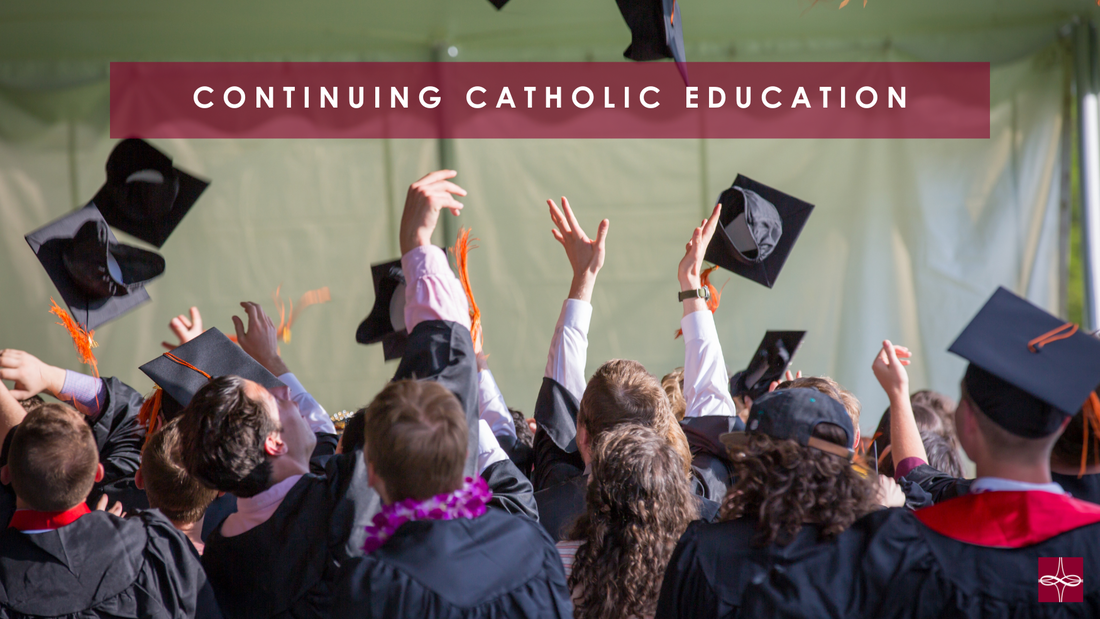
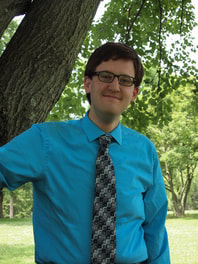
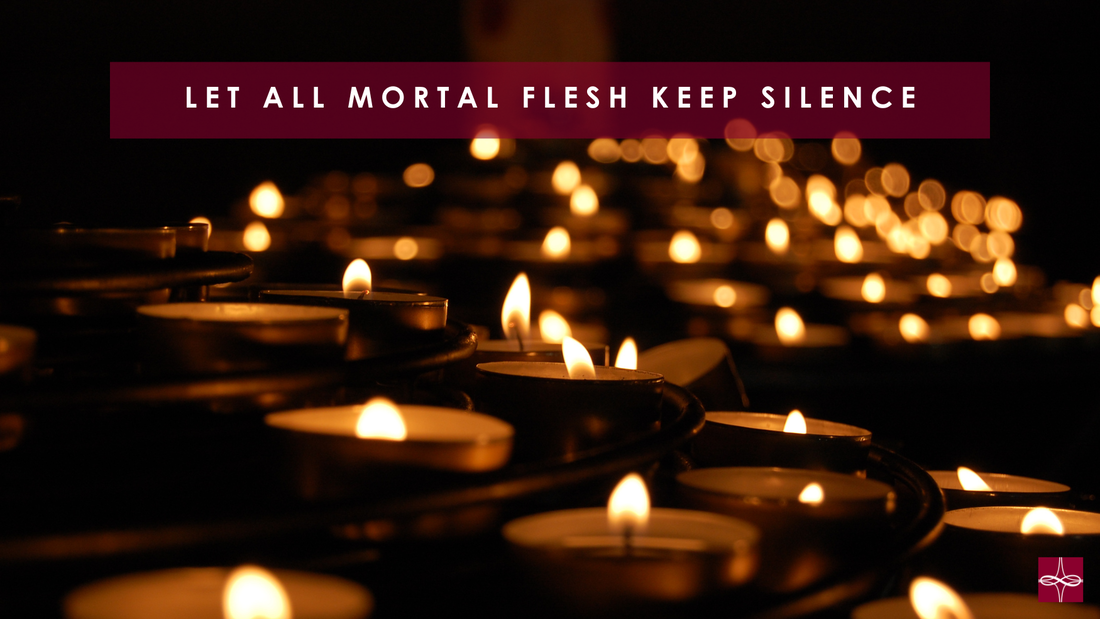
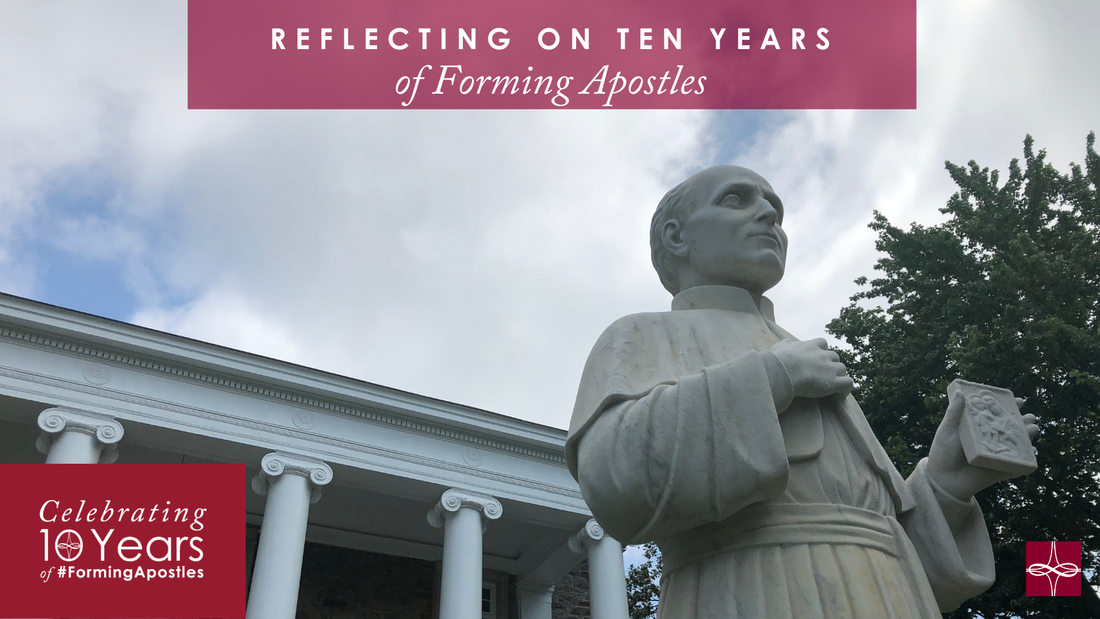
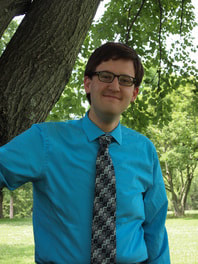
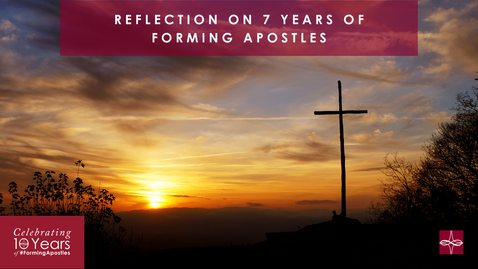
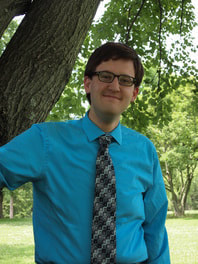
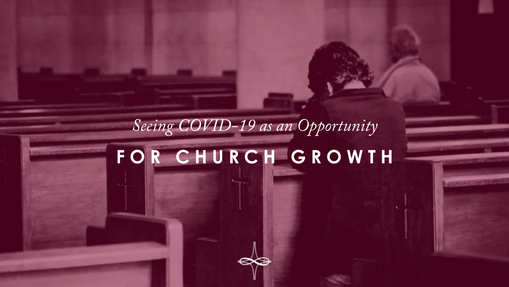
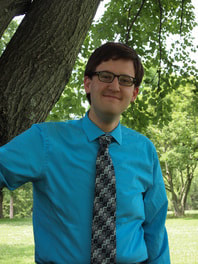


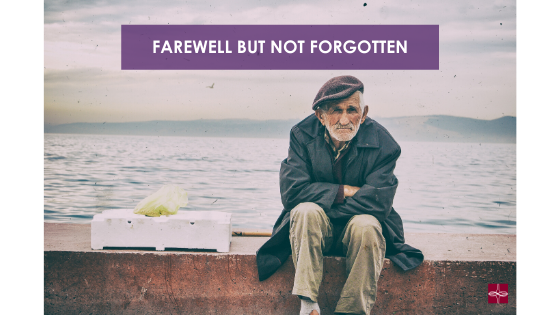
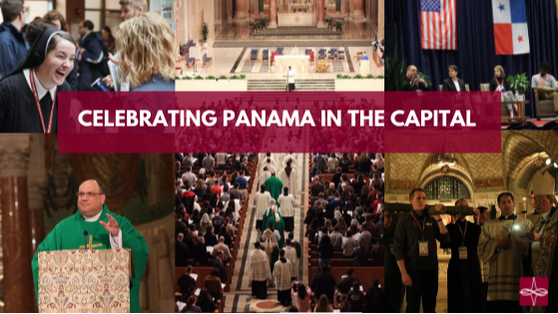

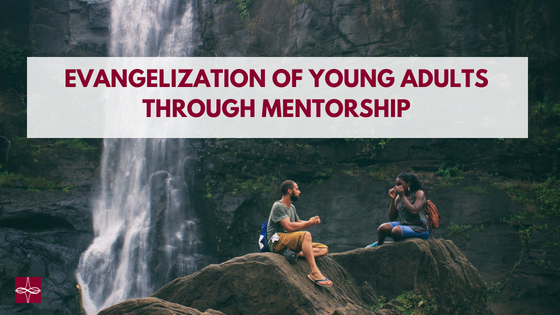

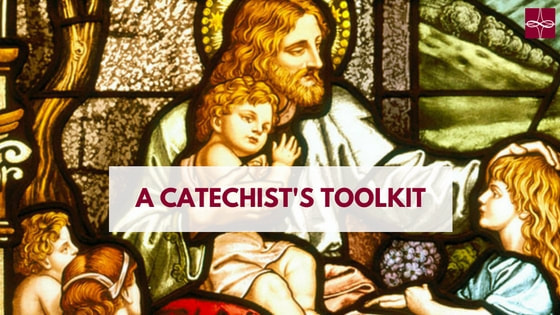




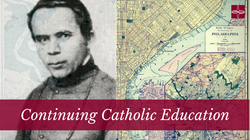

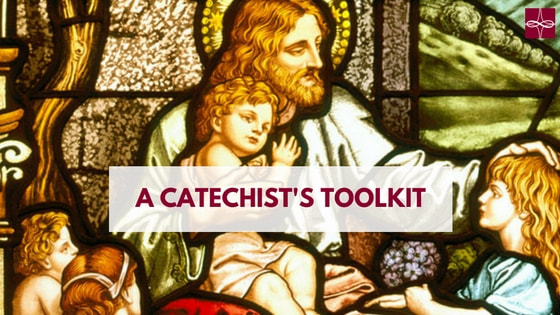

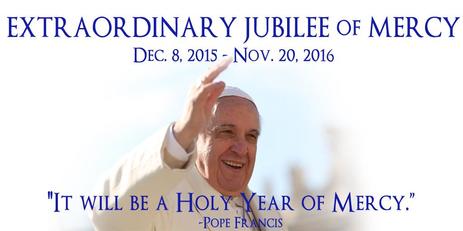

 RSS Feed
RSS Feed